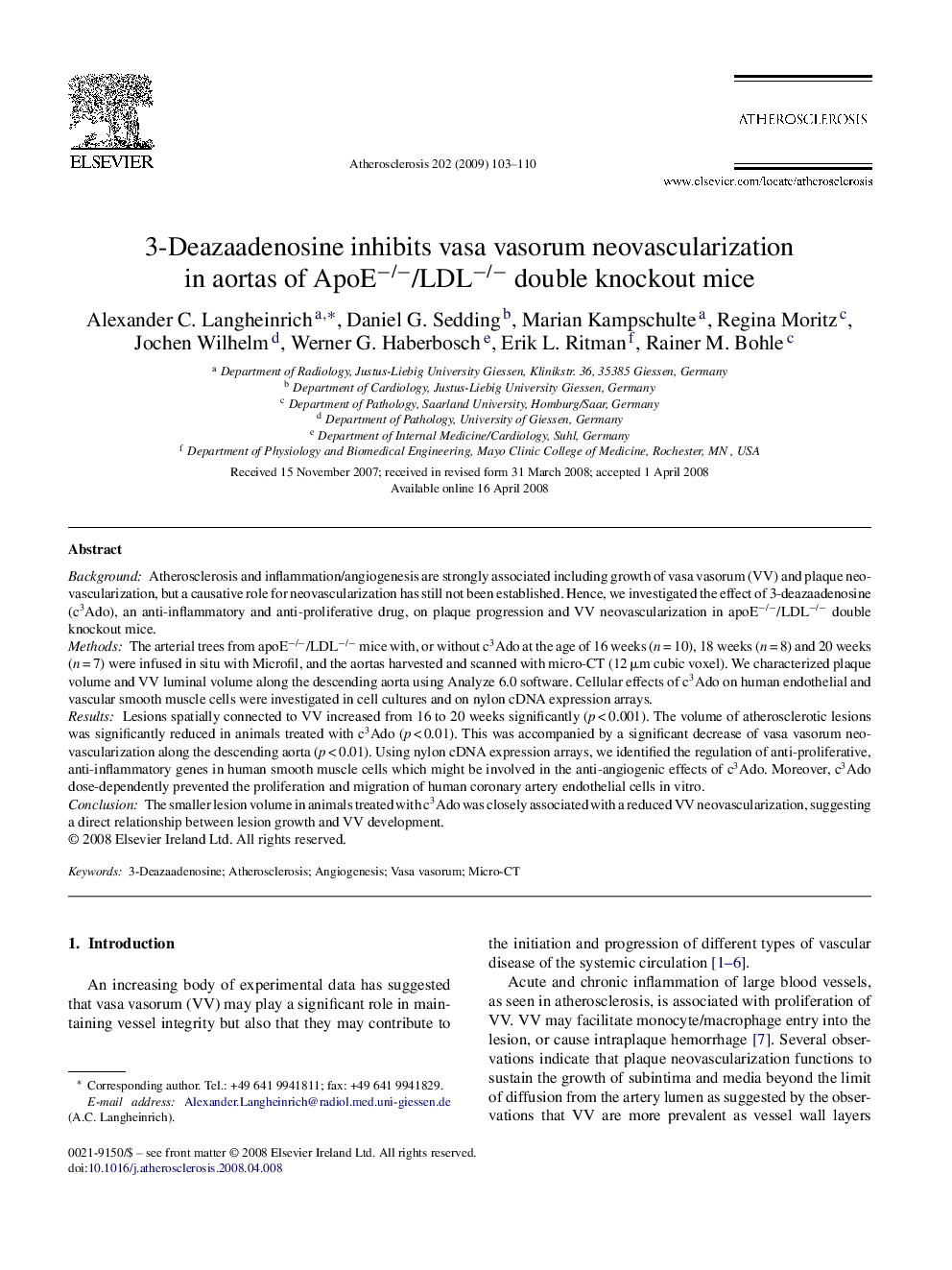| Article ID | Journal | Published Year | Pages | File Type |
|---|---|---|---|---|
| 2893771 | Atherosclerosis | 2009 | 8 Pages |
BackgroundAtherosclerosis and inflammation/angiogenesis are strongly associated including growth of vasa vasorum (VV) and plaque neovascularization, but a causative role for neovascularization has still not been established. Hence, we investigated the effect of 3-deazaadenosine (c3Ado), an anti-inflammatory and anti-proliferative drug, on plaque progression and VV neovascularization in apoE−/−/LDL−/− double knockout mice.MethodsThe arterial trees from apoE−/−/LDL−/− mice with, or without c3Ado at the age of 16 weeks (n = 10), 18 weeks (n = 8) and 20 weeks (n = 7) were infused in situ with Microfil, and the aortas harvested and scanned with micro-CT (12 μm cubic voxel). We characterized plaque volume and VV luminal volume along the descending aorta using Analyze 6.0 software. Cellular effects of c3Ado on human endothelial and vascular smooth muscle cells were investigated in cell cultures and on nylon cDNA expression arrays.ResultsLesions spatially connected to VV increased from 16 to 20 weeks significantly (p < 0.001). The volume of atherosclerotic lesions was significantly reduced in animals treated with c3Ado (p < 0.01). This was accompanied by a significant decrease of vasa vasorum neovascularization along the descending aorta (p < 0.01). Using nylon cDNA expression arrays, we identified the regulation of anti-proliferative, anti-inflammatory genes in human smooth muscle cells which might be involved in the anti-angiogenic effects of c3Ado. Moreover, c3Ado dose-dependently prevented the proliferation and migration of human coronary artery endothelial cells in vitro.ConclusionThe smaller lesion volume in animals treated with c3Ado was closely associated with a reduced VV neovascularization, suggesting a direct relationship between lesion growth and VV development.
